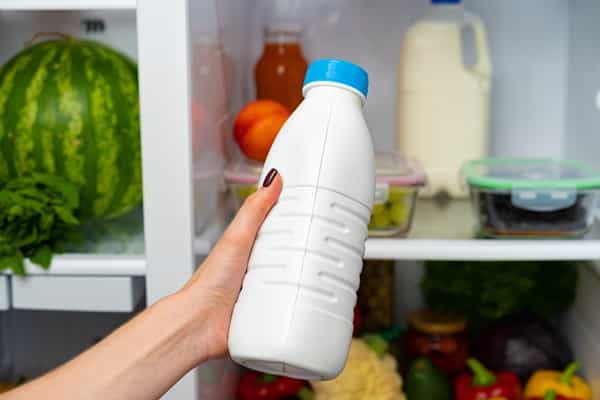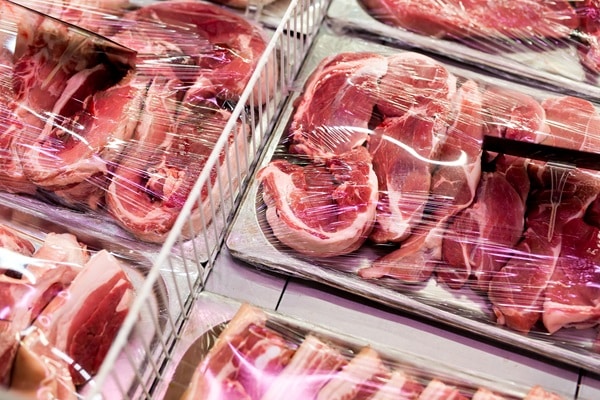You’re about to prepare a meal, and you reach for some ingredients in your fridge. But wait, the expiration date on the milk carton was yesterday! Should you proceed or toss it out? Understanding the foods that are risky to consume past their expiration dates is not just about avoiding an unpleasant taste; it’s a matter of health and safety. This post will delve into various types of foods—from dairy and meat to fruits and pantry staples—that you should never eat past their expiration date. Let’s get started by first understanding what these dates really mean.
Contents
What You Need To Know About Expiration Dates

Expiration dates serve as a guideline for consumers to understand the last day a product is guaranteed to remain safe to eat and maintain its intended taste and texture. However, these dates are not created equal. You’ll often see labels like “Sell-by,” “Use-by,” and “Best-by,” each indicating different levels of urgency. Knowing the difference can help you make informed decisions about the safety of consuming a particular food item.
But why are expiration dates so crucial? Consuming foods past their expiration date can lead to foodborne illnesses caused by bacteria such as Salmonella, E. coli, and Listeria. These bacteria can multiply rapidly in expired foods, turning a seemingly harmless meal into a health hazard. Therefore, it’s essential to be vigilant about these dates to protect yourself and your family. Now, let’s dive into some of the specific foods that you should never eat past their expiration dates.
Dairy Products

When it comes to dairy products, the risks of consuming them past their expiration dates are high. Milk, for instance, becomes a breeding ground for bacteria as it ages. Even if it smells okay, harmful bacteria may have already proliferated, posing a risk of food poisoning. Always adhere to the expiration date and opt for a sniff test for added assurance.
Cheese presents a different challenge. While hard cheeses like Parmesan may last longer, soft cheeses like Brie and Camembert spoil quickly and become unsafe to eat. Yogurt, too, can harbor harmful bacteria past its expiration date. If you notice any changes in texture, color, or smell, it’s best to err on the side of caution and discard the product.
Meat And Poultry

Meat and poultry are perhaps the most dangerous when consumed past their expiration dates. Red meat can develop a slimy texture and an off smell, indicating spoilage. Consuming spoiled meat can result in severe foodborne illnesses that require medical attention. Always check the date and examine the meat carefully before cooking.
Chicken poses an even greater risk. It’s a breeding ground for bacteria like Salmonella, which can lead to severe gastrointestinal issues. Processed meats like sausages and hot dogs also have a limited shelf life. These products often contain preservatives, but even those can’t extend the safety window indefinitely. If the color has turned grayish or the smell is off, it’s time to throw it away.
Fruits And Vegetables

Believe it or not, fruits and vegetables can also pose a risk when consumed past their prime. Berries, for example, are susceptible to mold, which can produce harmful mycotoxins. Always inspect your berries carefully and discard any that show signs of mold or spoilage. Leafy greens can harbor E. coli or Salmonella, especially if they’ve been stored improperly or for too long.
Pre-cut fruits present another set of challenges. Because they are exposed to more surface area, they are more susceptible to bacterial growth. Even if they look fine, they may be harboring harmful bacteria. Always adhere to the “Use-by” date and store pre-cut fruits at the proper temperature to minimize risks.
Pantry Items

When you think of food spoilage, pantry items might not be the first to come to mind. However, even these seemingly long-lasting staples can go bad. Canned goods, for example, can last a long time but are not immune to spoilage. If a can is dented, rusted, or swollen, it’s a clear sign that the food inside is no longer safe to eat. The risk of botulism, a severe form of food poisoning, makes it crucial to discard any questionable canned items.
Grains like rice and pasta also have expiration dates that should not be ignored. Consuming expired grains can lead to digestive issues and may even harbor harmful bacteria or mold. Spices, too, lose their potency over time and can become a breeding ground for bacteria if moisture gets in. Always keep your pantry items in a cool, dry place and adhere to expiration dates to ensure they remain safe to consume.
Frozen Foods

The freezer may seem like a sanctuary for extending the life of your foods, but it’s not a foolproof solution. Ice cream, for instance, can suffer from freezer burn, affecting its texture and flavor. While it may not make you sick, the experience of eating it will be far from enjoyable. Frozen vegetables can also show signs of spoilage, such as ice crystals or a musty smell, indicating that they’ve been stored for too long.
Frozen meats pose their own set of challenges. While freezing can extend the shelf life, it doesn’t make the meat last indefinitely. Over time, the quality deteriorates, and there’s a risk of freezer burn. More importantly, if meat has been thawed and refrozen, it can become a breeding ground for bacteria. Always check the color, texture, and smell before cooking frozen meat, and adhere to guidelines for how long different types of meat can safely be stored in the freezer.
Beverages

You might be surprised to learn that even beverages have a shelf life. Fruit juices can ferment and spoil, leading to an unpleasant taste and potential health risks. Always check the expiration date and give the bottle a good sniff before taking a sip. If it smells off or the color has changed, it’s best to discard it.
Alcoholic beverages, particularly wine and beer, can also degrade over time. While they may not pose a significant health risk, their flavors can become unpalatable. Even bottled water has a “best by” date, beyond which the plastic can start to degrade, affecting the taste and safety of the water. Always store beverages in appropriate conditions and be mindful of their expiration dates.
Tips For Managing Food Safety

Being proactive can go a long way in ensuring the foods you consume are safe. Proper storage is the first line of defense against spoilage. Different foods have different storage requirements, and adhering to these can significantly extend their shelf life. For instance, certain fruits and vegetables should be refrigerated, while others are best kept at room temperature.
Visual inspection is another crucial step in food safety. Always look for changes in color, texture, and smell. If any food item fails these tests, it’s safer to discard it. When in doubt, it’s better to be safe than sorry. Following the mantra “When in doubt, throw it out” can help you avoid the risks associated with consuming expired foods.
Understanding the foods that should never be consumed past their expiration dates is a cornerstone of kitchen wisdom. This guide has walked you through various categories, each with its unique set of risks and guidelines. The takeaway? Being informed and cautious can save you from unpleasant experiences and serious health issues. Make it a habit to check those dates and trust your senses—you’ll be doing a great service to your well-being.


